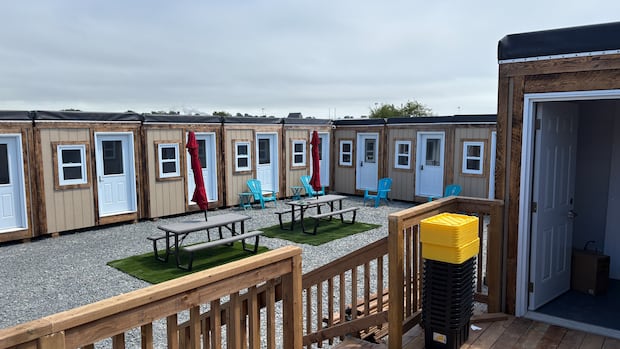New Saint John housing site working to be good neighbour, but businesses concerned
28 tiny units at Saint John's transitional housing site to see first residents Friday
Saint John's first "green zone," a site with transitional housing for homeless people, will see residents moving in Friday, and some nearby business owners say they hope the operators are keeping public safety top of mind.
The 12 Neighbours group will run the project, called Neighbourly Homes, for people who have been living in encampments.
The site, on Egbert Street off Thorne Avenue in east Saint John, consists of two courtyards with a total of 28 tiny units and shared bathroom and kitchen space. Each unit has a bed, desk and iPad.
The site is near a 60-plus bed shelter, which opened in the winter as the city's out-of-the-cold response but has since turned into a year-round overnight shelter. The shelter is run by the non-profit Fresh Start Services, which also identified the people who will live in Neighbourly Homes.
The area is also home to several auto-related businesses.
Jeff Murray, owner of Saint John Spring Works Ltd., a truck shop directly behind the shelter, says he has experienced petty thefts, such as the theft of licence plates from cars, and other concerning behaviour since the shelter opened, and he fears the green zone's arrival will add to the problem.
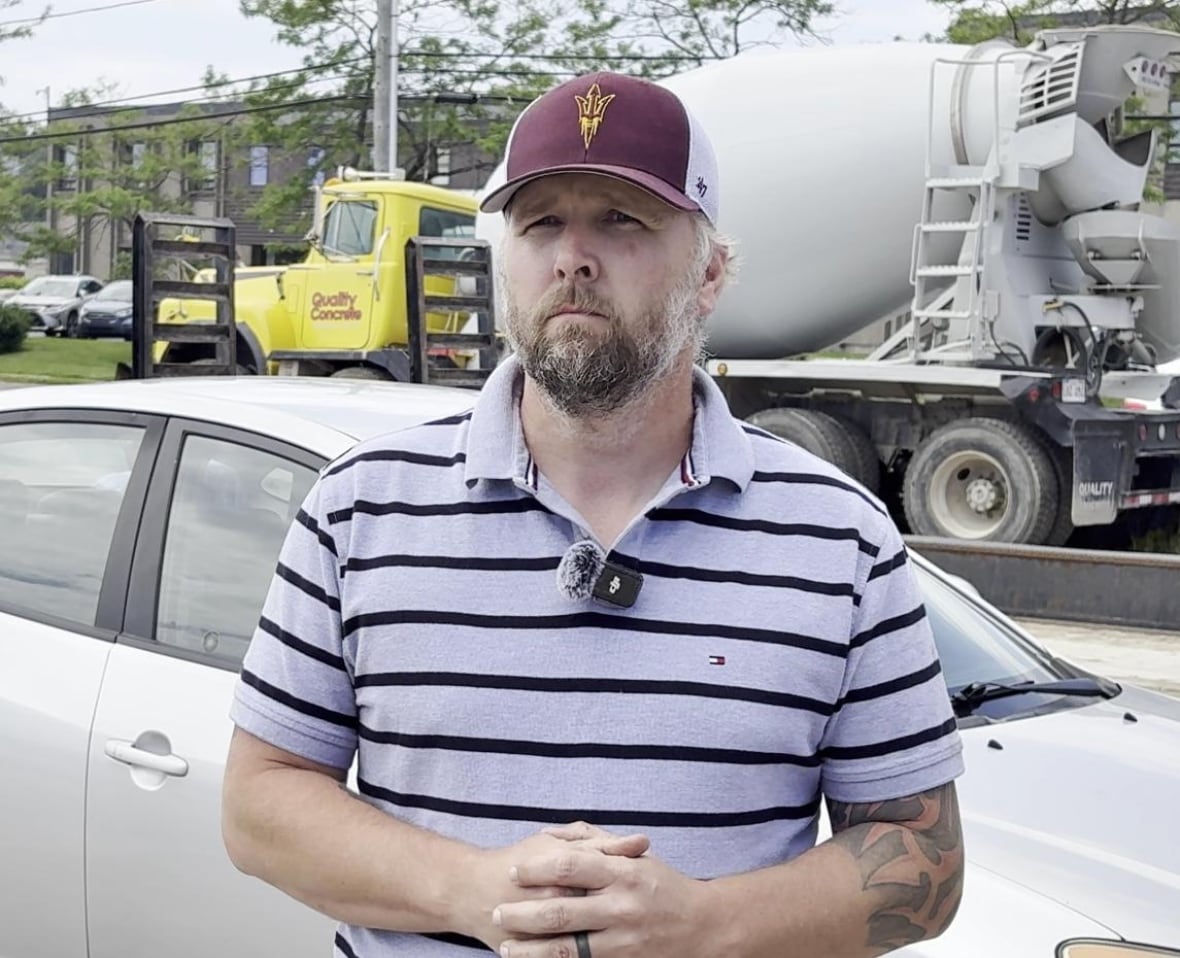
"It's sort of gotten worse since the winter. They were open 24/7 in the wintertime," he said. "Now we're having the people that are here when the shelter is not open, I guess, use it as a human dumping ground. It could be feces, it could be garbage, it could be drug paraphernalia — things of that nature."
Another green zone will open later this year as part of Saint John's Housing for All strategy, launched last year. The two sites could be home to a total of 56 residents.
Green zones were originally described as areas where homeless encampments would be permitted, with services such as heating and garbage pickup.
But in May, the city provided full details of what has become a transitional housing site, supported by a $3.5-million funding agreement with the federal and provincial governments.
Tenting won't be allowed around site
Nick Shepard, Fresh Start's outreach co-ordinator, said the organization and city staff have met with businesses and are aware of concerns.
He said the city will be expanding the presence of outreach workers to maintain safe areas around green zones.
"One thing that will be a benefit to having spaces like these in this community is that the city will be having a 200-metre buffer around a lot of these spaces, where they're not going to allow tenting," Shepard said.
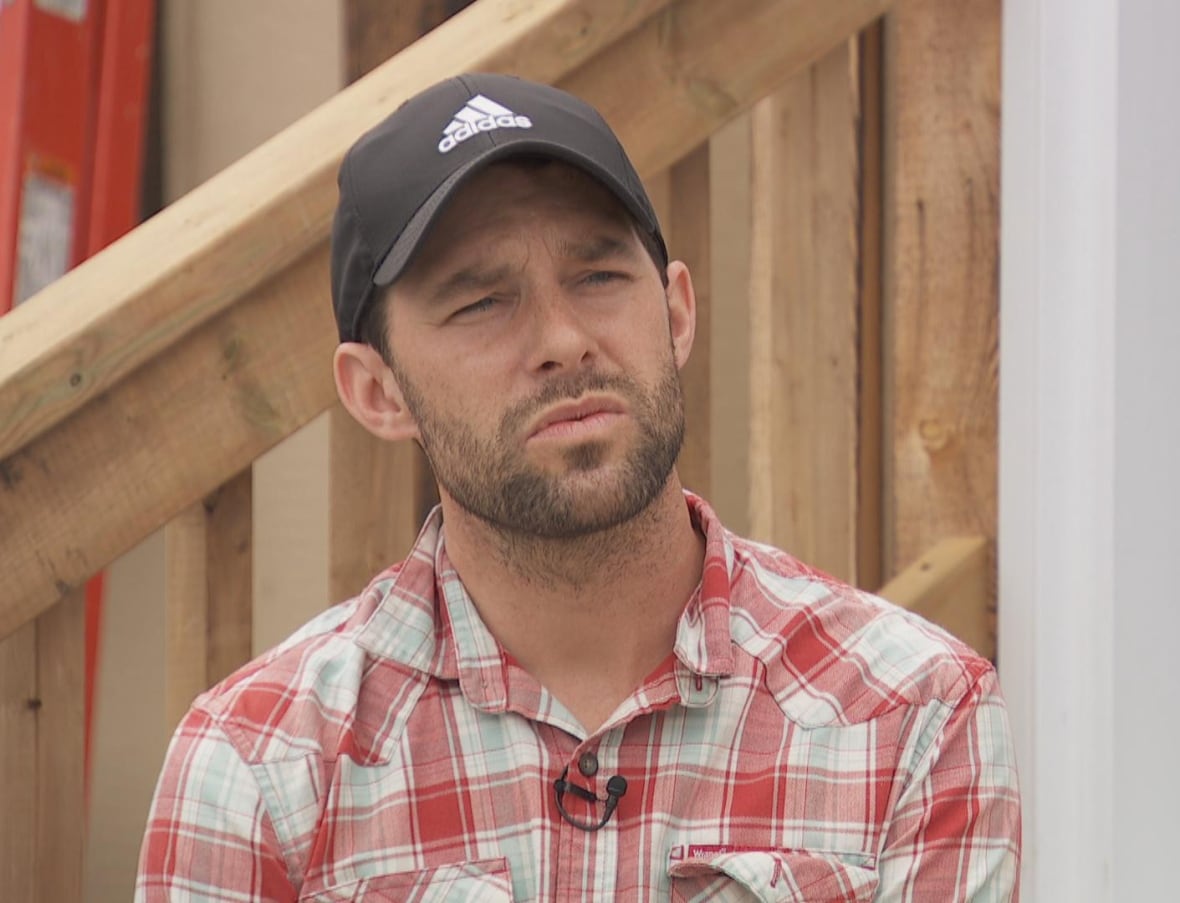
The site will have security cameras, and city staff said Saint John police will do regular patrols for safety within and surrounding the green zone.
Rick Dikens, whose shop, King Transmission Ltd., is across the street from Murray and steps from the green zone, has similar concerns. With a large encampment close by, Dikens said, he has experienced challenges for years.
"It's nice to see the city doing something," he said. "I'm not sure if it will fix the problems that businesses like mine and the others in the area are having. I hope they can fix some lives with it."
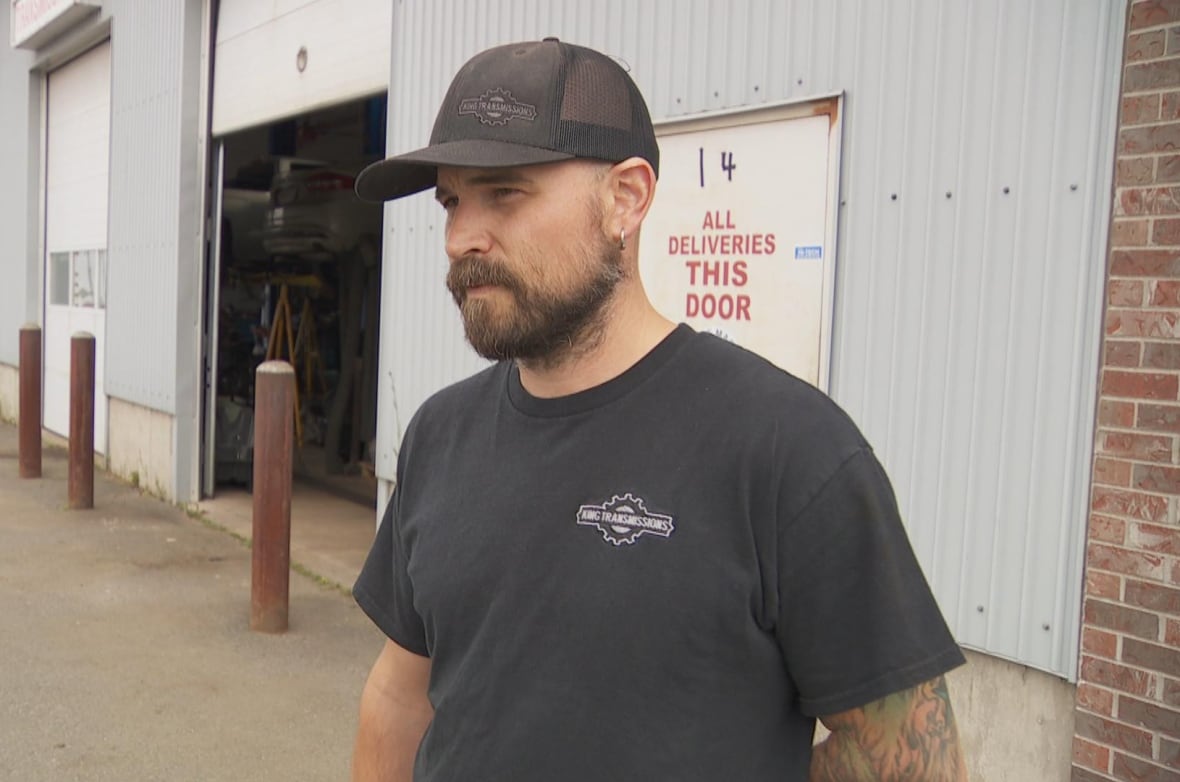
Murray said he understands that homelessness is a national problem, and that transitional housing is needed. He also believes the city cares about business's concerns.
But businesses want to see governments ensure protocols are in place so he, his neighbours and their patrons aren't facing risks to their safety and properties.
"Right now, I can't say that there is no risk," he said. "It is not uncommon for folks to drop off their vehicle and be confronted by someone who's on the street and not in the right mindset which is not a good feeling for anybody."
Site will help rebuild lost skills
Marcel LeBrun, founder of the 12 Neighbours group, said the project will break barriers that drive people to sleep in encampments instead of emergency shelters by offering a private, lockable place, without a curfew and open to pets.
"The idea is to eliminate a lot of those barriers, why people might not choose emergency housing and they might choose to stay outside," LeBrun said.
The Saint John site will have no rules about substance use. Admission is based on behaviour, and recovery services will be available to those who want them.
"Most folks that are living rough are substance users — that's just what the reality is," LeBrun said.
"Some people are substance users and functional in their lives, and for others it might cause them behavioural issues that make it difficult for them to live in communities. For us, it's really about the behaviour more than the substances."
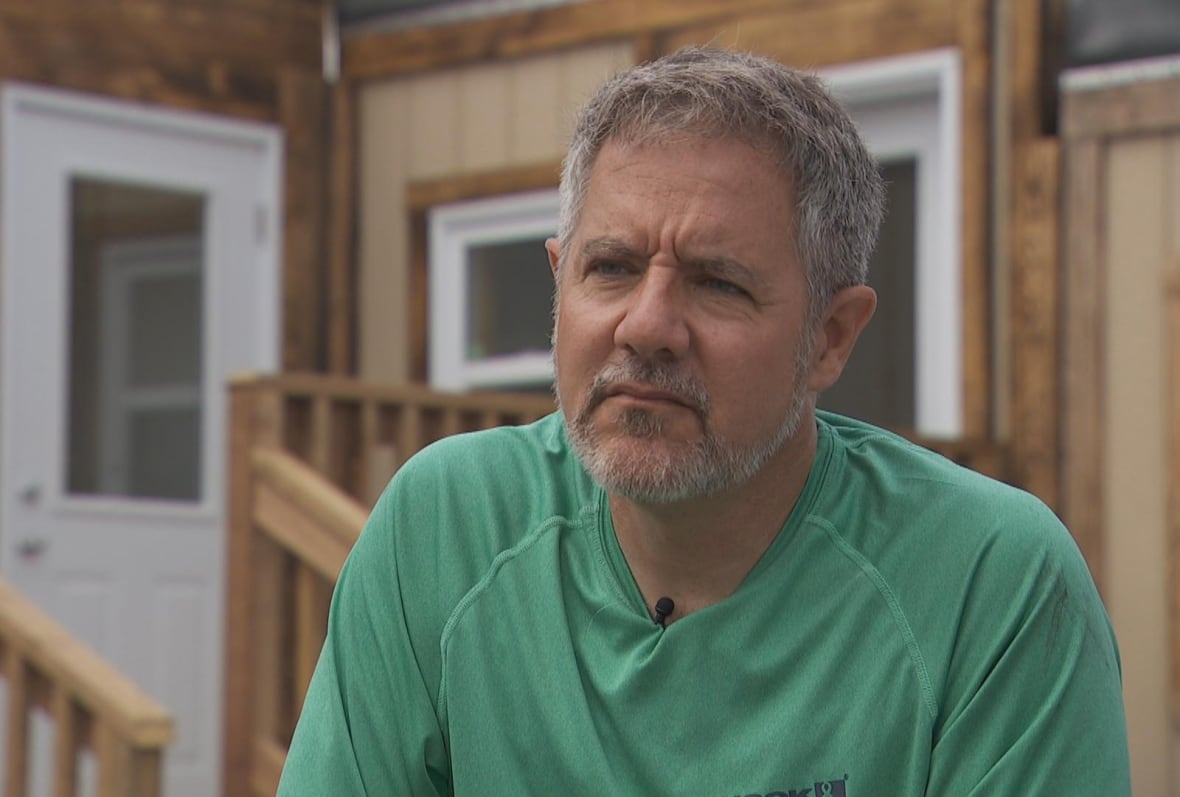
One goal of the project is to develop "tenancy maintenance skills," such as cooking, cleaning and budgeting for bills, which Shepard said can be lost when someone is homeless for years.
"All the types of things that we just take for granted, like 'When do I need to clean my bathroom?'" he said.
"We've seen situations where individuals are plucked out of the street or shelters and plopped into apartments and maybe the support is not enough, and they flounder because they've lost a lot of those soft skills, so they're right back to the shelters or onto the street."
At Neighbourly Homes, tenants will not be required to pay rent but will instead pay roughly $5 a day for a warm meal program.
Shepard said the groups operating the site are committed to being good neighbours.
"If this is successful you'll see secondary sites, you'll see other agencies stepping forward, looking to do more of this alternative housing," he said.
"So we really need this to be a success."

